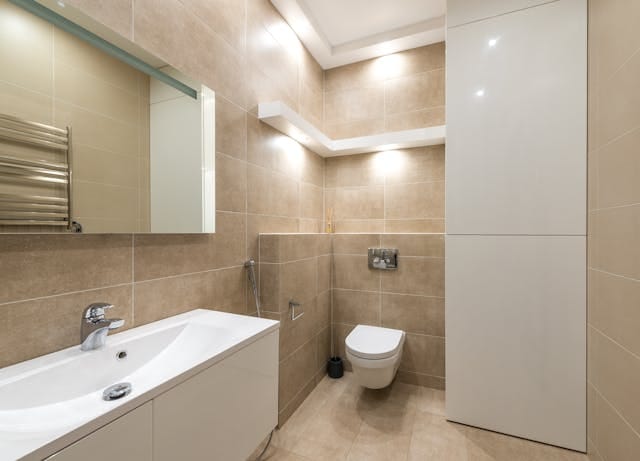Replacing a shower may seem like a straightforward job—until you’re knee-deep in invoices, decisions, and hidden fees. If you’re planning a bathroom upgrade, understanding shower replacement costs is absolutely essential. In this FAQ-style guide, we break down everything homeowners need to know (but aren’t usually told).
💸 What Is the Average Cost to Replace a Shower?
The cost of replacing a shower can vary widely depending on the size, materials, and complexity of the installation. On average, you can expect to spend anywhere between $1,500 and $8,000.
Here’s a quick breakdown:
Basic prefab shower kit: $1,000 – $2,500
Mid-range tiled shower: $3,000 – $5,000
High-end custom shower: $6,000 – $10,000+
These prices usually include demolition, plumbing adjustments, new materials, and professional installation.
🛠️ Why Do Costs Vary So Much?
Because every shower—and every bathroom—is different. Costs fluctuate based on:
Materials (acrylic vs. tile vs. stone)
Plumbing upgrades
Waterproofing
Structural repairs
Labor rates in your region
Also, surprise costs often emerge when walls are opened up. Mold, outdated plumbing, or insufficient framing can quickly inflate your budget.

❗ Are There Hidden Costs I Should Watch Out For?
Absolutely—and this is where most homeowners get caught off guard. Common hidden costs include:
Permit fees
Water damage repair
Disposal of old materials
Plumbing code upgrades
Custom glass doors
These extras can add hundreds—or even thousands—to your total.
🧼 Is It Cheaper to Just Refinish or Reglaze My Shower?
If your shower is structurally sound and you’re mainly concerned with aesthetics, refinishing or reglazing might cost you between $300 and $900. It’s a solid short-term fix, but won’t solve deeper issues like leaks or poor water pressure.
🧱 What Materials Should I Choose to Stay Within Budget?
If you’re cost-conscious, here are smart picks:
Acrylic or fiberglass surrounds – affordable, durable, and low-maintenance
Standard-size shower bases – custom pans are pricey
Prefabricated glass doors instead of custom
Pro tip: Skip the imported stone tile. Locally sourced porcelain offers great aesthetics at half the price.
🧑🔧 Should I DIY or Hire a Pro?
DIY may save you $1,000–$3,000, but only if you’re experienced with:
Plumbing
Waterproofing
Tiling
If done wrong, it can lead to leaks, mold, or costly repairs later. Hiring a reputable contractor ensures code compliance and lasting results—especially with a high-moisture area like a shower.
🏡 Will a New Shower Increase My Home’s Value?
Yes—especially in older homes or those with outdated bathrooms. A modern, functional shower can recoup up to 60–70% of its cost in home value. Even modest upgrades can greatly boost buyer appeal.
💡 How Can I Save Money Without Sacrificing Quality?
Here are a few real-world, Scott McGillivray-approved strategies:
Get multiple quotes and compare scope, not just price.
Bundle with other upgrades to reduce labor costs per task.
Use ready-made kits where possible.
Choose mid-grade materials—durable, but not premium-priced.
Avoid layout changes—relocating plumbing is expensive.
⏳ How Long Does a Shower Replacement Take?
A basic swap may take 2–4 days, but custom work can stretch to 1–2 weeks. Always account for inspection delays or material backorders.
✅ Final Thoughts: Is It Worth It?
Replacing your shower is a high-impact upgrade that enhances comfort, functionality, and resale value. But to avoid regret (and sticker shock), go in informed. Know your goals, get detailed quotes, and plan for contingencies.
🚀 Ready to Start Your Bathroom Upgrade?
Take the guesswork out of remodeling. Whether you’re dreaming of a sleek walk-in or a functional family shower, expert help ensures it’s done right—the first time.
Act now and turn your bathroom into the space it was meant to be.
